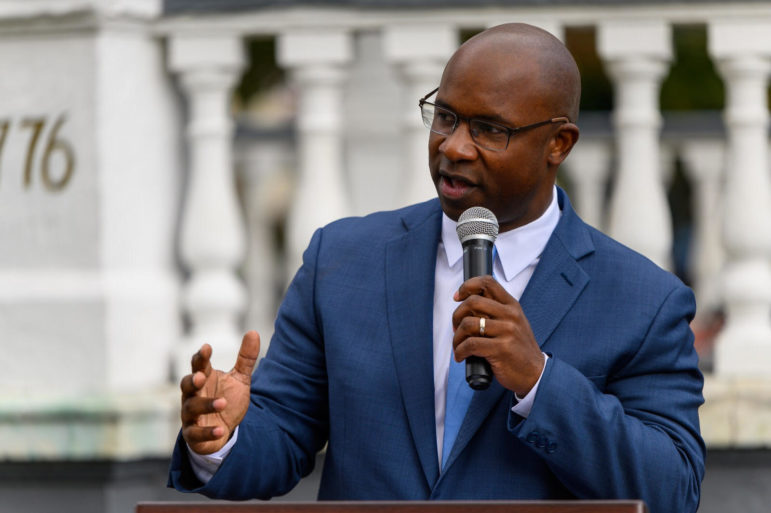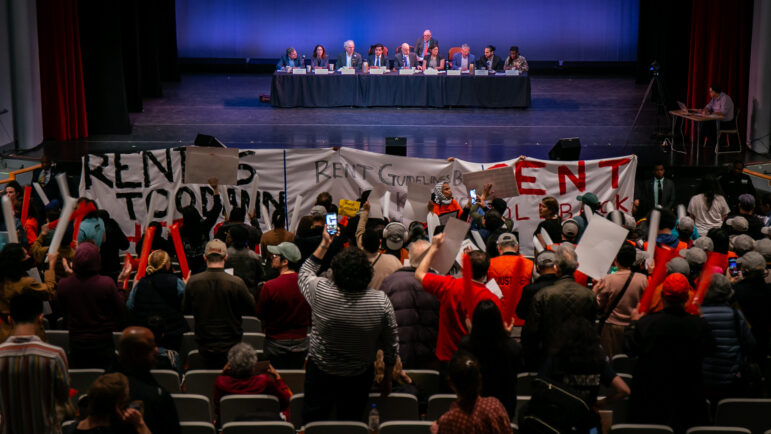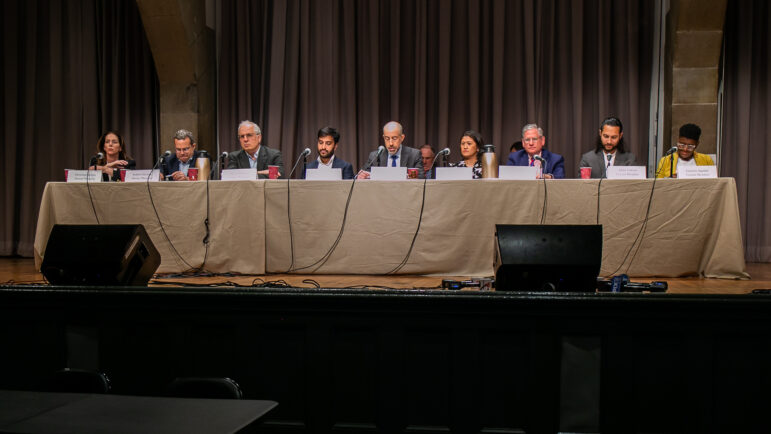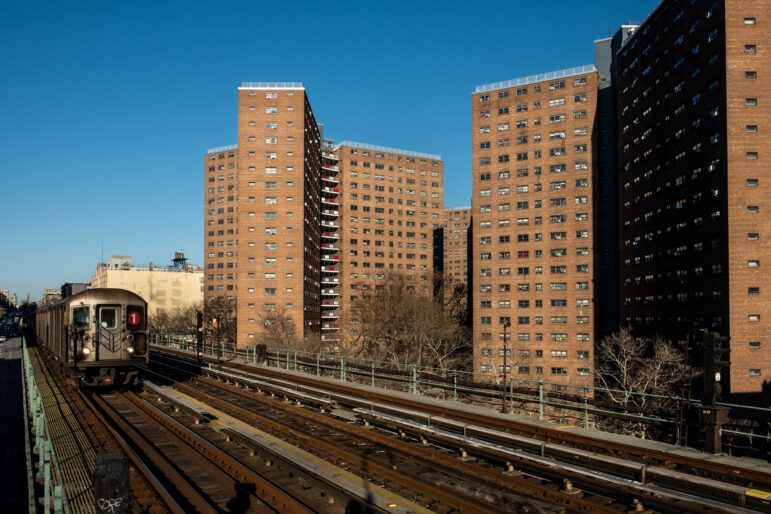
Bowman for Congress
Jamaal Bowman is challenging veteran Representative Eliot Engel.
Labor Day just passed, a pivot point when political campaigns rev up. So, I call attention to an election in a congressional district impacting the Bronx. But it won’t take place this year.
The course District 16 takes will be determined by voters in 2020. Why discuss it now? Because two roads will diverge. The road less traveled may follow what has happened recently: Long-serving office holders upset by younger, unknown candidates. The outcome will further test how much traditional politics still holds sway.
We saw Alexandria Ocasio Cortez steadily build grass roots support to shock high-ranking Representative Joseph Crowley last year. Alessandra Biaggi ousted State Senator Jeffrey Klein. The former took victory for granted; the latter broke rank with his colleagues in Albany, alienating registered Democratic voters and depriving the party of a legislative majority.
Of greater significance, both women out-organized the insiders and had ideals and ideas that moved discounted voters to choose them. They demonstrated that the inertia of incumbency and a failure to fully represent constituencies can be turned against smug shoo-ins.
Now, Jamaal Bowman, a 20-year public school educator and principal of CASA Middle School in the East Bronx, sets out to challenge 30-year Representative Eliot Engel. Mr. Engel has a strong base in the West Bronx and southern Westchester. He has served my neighbors and me well in the precincts nearest his office and is unlikely to be caught off guard by a newcomer in next year’s primary.
Andom Ghebreghiorgis, a special education teacher, is also running to replace Engel. He and Bowman hold positions that contrast with Engel’s and will divide voters desirous of change.
Mr. Bowman drew my attention in 2015. He spoke to a task force assembled by Governor Cuomo to review implementation of test-centered education policies Cuomo had unfurled under the Common Core banner. While Bowman’s school made chart-topping, 10 percent gains that year, he eschewed using the results to trumpet his leadership.
In fact, Bowman sympathized with parents who opted their children out of testing to protest over-reliance on flawed exams and the opportunity costs of preparing kids to take them each year.
He is more concerned about addressing children’s untested strengths, emphasizing what he calls “whole child” education: embracing a student’s ability to think critically, to communicate and to work with others; recognizing and striving to reach the arc of each child’s aptitudes and imagination; and advocating for an assessment system that stands on teacher observations, judgments and high expectations to inform classroom activity, rather than scores that are the reflection of answer sheet bubbles.
Moreover, the wholeness Bowman espouses has been designed to build broad parental, community and private sector engagement with his school, objectives CASA has realized. If elected, he would extend this holistic approach districtwide, valuing inclusiveness and the integration of all people and their insights.
That was my first impression of the vision, acumen, understanding of the dynamics of inequity and inspiration Bowman would bring to the 2020 campaign, making his school a model of how he would serve in congress.
I urge readers to look at his recent interview with political reporter Errol Louis: It provides a better sense of the man and what he stands for.
While supporting Bowman, I also write this to raise issues about democracy that transcend District 16:
Think gray. It is a blend of black and white. Its neutrality should remind us not to let heated identity politics become a candidate’s platform to the exclusion of other substantive concerns. As Bayard Rustin said, “We are all one. If we don’t know it, we will learn it the hard way.”
Representation matters. In districts that serve diverse communities, everyone should expect the active participation of officials. Unfortunately, as in 16 (which covers a population that is 60 percent minority), too many folks have been ignored by milk carton congressmen.
Longevity has limits. In the Capitol’s corridors, great authority goes to members based on seniority. (Engel now chairs the House Foreign Affairs Committee). The accrued power is used as an argument to keep them in office and deter challengers. It’s hard to discern how this kind of governance translates into benefits for voters at the local level.
Let’s hope the electorate sees things clearly in 2020.
Fred Smith is a Bronx resident.









2 thoughts on “Opinion: The 2020 Election Season is Underway, and Jamaal Bowman’s Bid Deserves Attention”
He is an imposter playing off liberal voters. Not sure the alternative is better but neither is he. If his school is the only accomplishment under his belt then that isn’t saying much since he was absent from running in it and handled parents and the community poorly. He doesn’t get respect.
We need new blood tired of the non doers abuse of power some one to help the poorest of communties because when a crisis hit were impacted and the the fire is fueled everywhere and we are the cosumers small buiness make up America and the economy so get some one to clean up fairhousing better education is needed these children need to learn how to be great we dont need no one who just want to help aroundcelection time stop voting for the same people looking for change they are not for the people let jamal help he is a man for our next generation and he wants to help liw income houeing people with bad credit but a goid heart to change there lives my credit score is not who i am i just merd to surround myself like people in my communities with people who want to helo change and make change